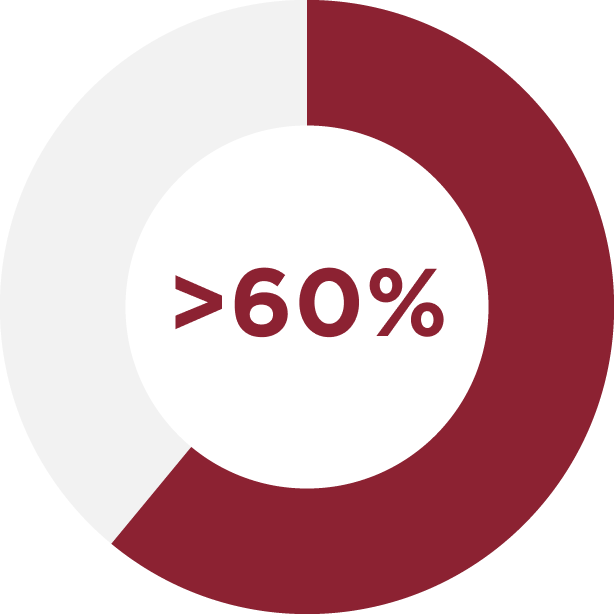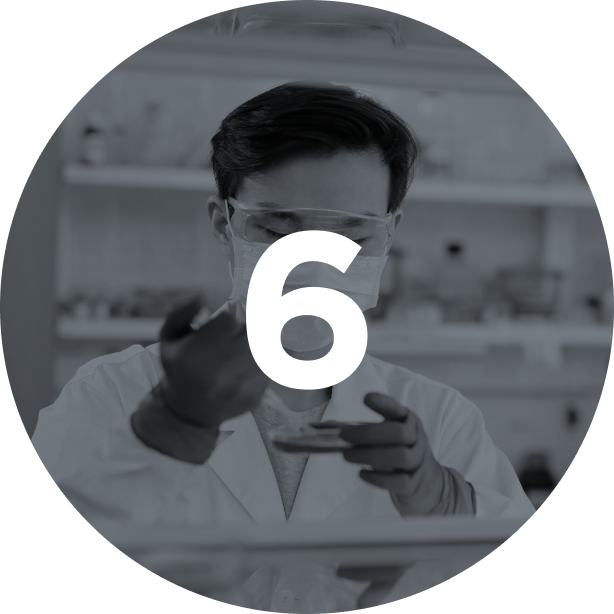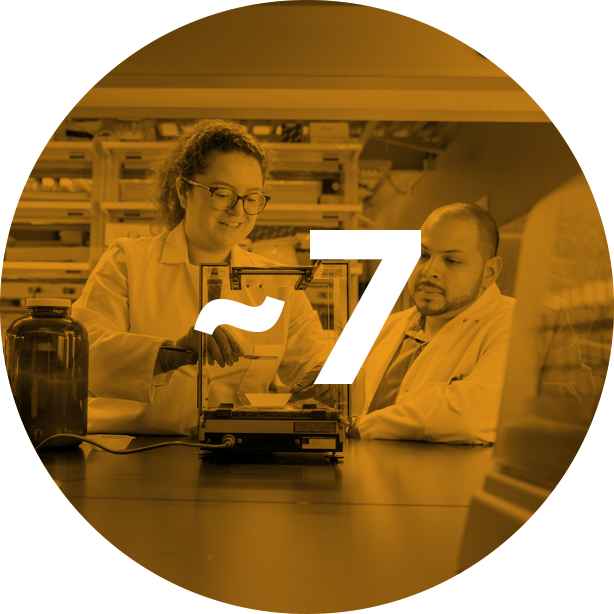
Ph.D. Programs in the Biomedical Sciences
The GSBMS Ph.D. programs, as well as a joint M.D.-Ph.D. program, in six biomedical disciplines are intended for students dedicated to advanced research, scientific discovery, and mastery of the discipline. Ph.D. graduates often work as senior and supervisory research scientists in labs across scientific industries, become professors where they conduct research in academia, or use their critical analysis skills as scientific writers and policy experts.
Ph.D. Program Disciplines
We offer six specialized Ph.D. programs in the biomedical sciences, each focused on a separate discipline. All programs use a multidisciplinary approach, so you’ll become familiar with additional areas of scientific inquiry as they relate to your specialization.
Snapshot of the GSBMS Integrated Ph.D. Program
Program Length and Format
- Requires 30-37 didactic course credits plus ongoing research training
- Ph.D. candidates complete original laboratory research under faculty mentor guidance
- Usual completion time is five to six years but can be completed in four years.
Our Students

Over 60 percent of our Ph.D. candidates are women.

Students complete their Ph.D. degrees in 5-6 years.

6-8 new Ph.D. students are accepted each year.
GSBMS Stories
New York Medical College Celebrates the Class of 2025 at 166th Commencement Ceremony
The Class of 2025 Embarks on the Next Chapter of Their Careers in Health Care, Public Health, and Research
How to Enter the Ph.D. Program
There are three distinct pathways to entering our Ph.D. program:
Integrated Ph.D. Program
Most of our Ph.D. students enter through the Integrated Ph.D. Program (IPP). As a student in our IPP program, it is not necessary to choose a focused discipline right away. In the first year, you’ll begin with the core curriculum and three research rotations in different laboratories. This allows you to explore different disciplines and see what interests you the most. At the beginning of the second year, you will choose your program concentration and continue along the Ph.D. path. Learn more about the program on our Integrated PhD Program page.
Advanced Standing
You can apply to enter the Ph.D. program with advanced standing after completing one of our discipline-based master's programs or the Two-Year Interdisciplinary Biomedical Sciences program. Advanced Standing means you can enter the Ph.D. program with the majority of your didactic credits already complete. In general, you will follow the same milestones as a student in the IPP. To enter the program, you must submit a formal application and find a lab to support your research.
Joint M.D.-Ph.D. Program
The joint M.D.-Ph.D. program is for research-driven students who want to graduate with both of these advanced degrees and pursue a career as a physician-scientist. A physician-scientist is a unique career path where a major component of your career is engaged in research, whether at a medical research center or in academia. While most physician-scientists do engage in some clinical work, they typically won’t be focused on patient care full time. Understanding medicine from both a clinical and research perspective is advantageous when involved in clinical trials.
Only current medical students at the School of Medicine (SOM) are admitted for entry into this competitive program. The Ph.D. component of study begins in July following the end of your second year, with classes starting in August.
Students are not formally admitted to the Ph.D. program until they have successfully completed all preclinical coursework of the medical curriculum and Part I of the U.S. Medical Licensing Examination (USMLE). If you’re interested in this intensive program, it’s important to meet with the program director (libor_velisek@nymc.edu) early on to discuss. You must submit a formal application and find a lab to support your research.
The number of required didactic course credits for your Ph.D. is lower in the joint degree program. Find all program details and requirements on our M.D.-Ph.D. Program page.

